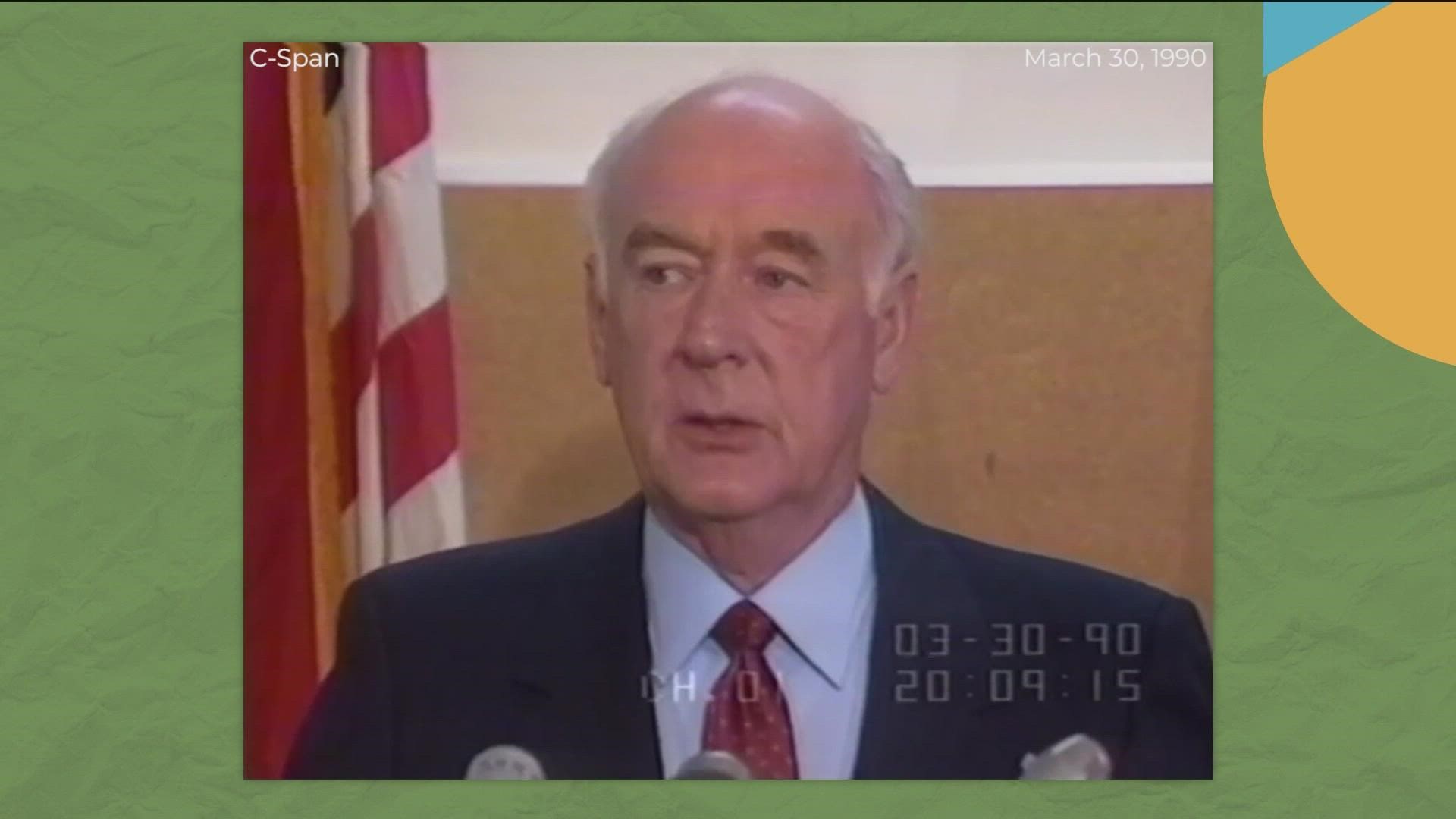BOISE, Idaho —
Idaho is obviously not alone in a scenario where the landscape of womens’ reproductive health could change. It seems every state has passed abortion laws in the last few years, in one way or another, anticipating a U.S court ruling on Mississippi's Dobbs versus Jackson Women's Health Organization would overturn Roe v Wade.
13 states have trigger laws, banning abortion in all or most circumstances, if Roe v Wade is overturned. 23 states have plans to institute similar bans, or have it severely restricted, according to the center for reproductive rights data.
Idaho has two abortion laws in the books, one bans it altogether, the other makes the doctor punitively liable for the procedure. But this wasn’t always the case.
For decades, states were unwilling to ‘take it all the way to the supreme court’ since, well, they set the standard in the first place, legalizing access to abortion in America with the Roe v Wade ruling in 1973. Then along came Idaho, in 1990, when the gem state became the first to make a genuine effort to challenge Roe v Wade.
House bill 625 would have outlawed abortion, except in cases of: non-statutory rape, if that rape was reported within seven days; in cases of incest, if the victim is under 18; or in cases of severe fetal deformity, or a threat to the life or health of the woman.
In other words, more than 90% of the 1500 abortions performed in Idaho in 1990 would have been illegal. The arguments for the bill, back then, were about the same as today.
The bill moved forward based on the belief a favorable ruling would come from the highest court in the land.
Then-house majority leader Gary Montgomery said the balance of the supreme court meant abortion was no longer a private matter. The ban passed the house 47-36, and then the senate 25-17. So it was not with overwhelming support that it was sent to then Idaho governor Cecil Andrus, who was running for a fourth term that year, a run on the second floor never seen in Idaho.
The legislature adjourned for the session, and that day, governor Andrus walked out of the capitol to the hall of mirrors, the Joe R. Williams building across the street, to say this:
I did not take the oath of office for governor of the state of Idaho to put my name on bad legislation, therefore I have vetoed house bill 625 and returned it to the house from whence it came,” Andrus said.
Governor Andrus was against abortion, but there were three things he saw as wrong with the bill: the exceptions were too narrow; the bill came from too far away, crafted by out-of-state interests, and that it was unconstitutional and would cost the state a fortune in the courts.
The governor's press secretary that day was Marc Johnson, who organized that press conference across the street because there was not a room big enough at the time in the Capitol to hold all the members of the media. Today, he shared with us his memories of that time and its significance.
“For about a two-week period in late March of 1990, Idaho really was kind of at the political epicenter of what was going on in the country. I remember, distinctly, reporters from national and even international news organizations sort of parachuting into Boise to cover this story, the end of the legislative session, and the reality that the governor was going to have to deal with this piece of controversial legislation one way or the other,” said Marc Johnson. “Telephones were ringing off the hook 24 hours a day, this was pre-internet days, so one way to communicate was through fax machine, and I remember the fax machine was just humming constantly with messages from all over the country and literally from all over the world taking a position on this legislation.”
When asked about the events that took place in 1990, Johnson said they are different, but there were still lessons to be learned.
“What are consequences of a piece of legislation on an individual Idahoan who may find themselves in a very difficult situation, assuming for example that Idaho wants to limit abortion access just to cases of rape or incest or the health of the mother is involved,” Johnson said. “What are the practical applications of how that works? The governor admitted that he didn't think those applications were really workable and they would further victimize people who found themselves in those situations.”
Since 1995, abortion bans have been enacted in more than half the states and challenged in courts throughout the country, but all have been rebuffed because of the precedent set by Roe v Wade. But that might change within the next week, and with it, the landscape of abortion access across the country.
Join 'The 208' conversation:
- Text us at (208) 321-5614
- E-mail us at the208@ktvb.com
- Join our The 208 Facebook group: https://www.facebook.com/groups/the208KTVB/
- Follow us on Twitter: @the208KTVB or tweet #the208 and #SoIdaho
- Follow us on Instagram: @the208KTVB
- Bookmark our landing page: /the-208
- Still reading this list? We're on YouTube, too:

